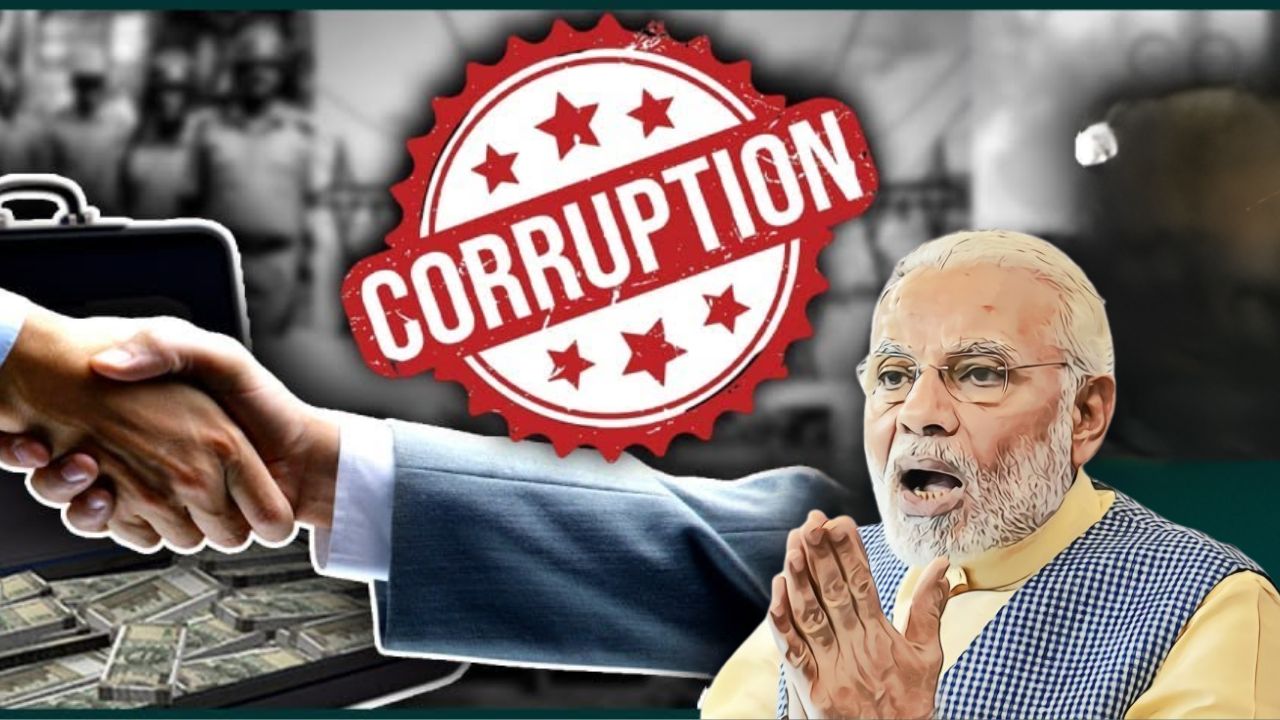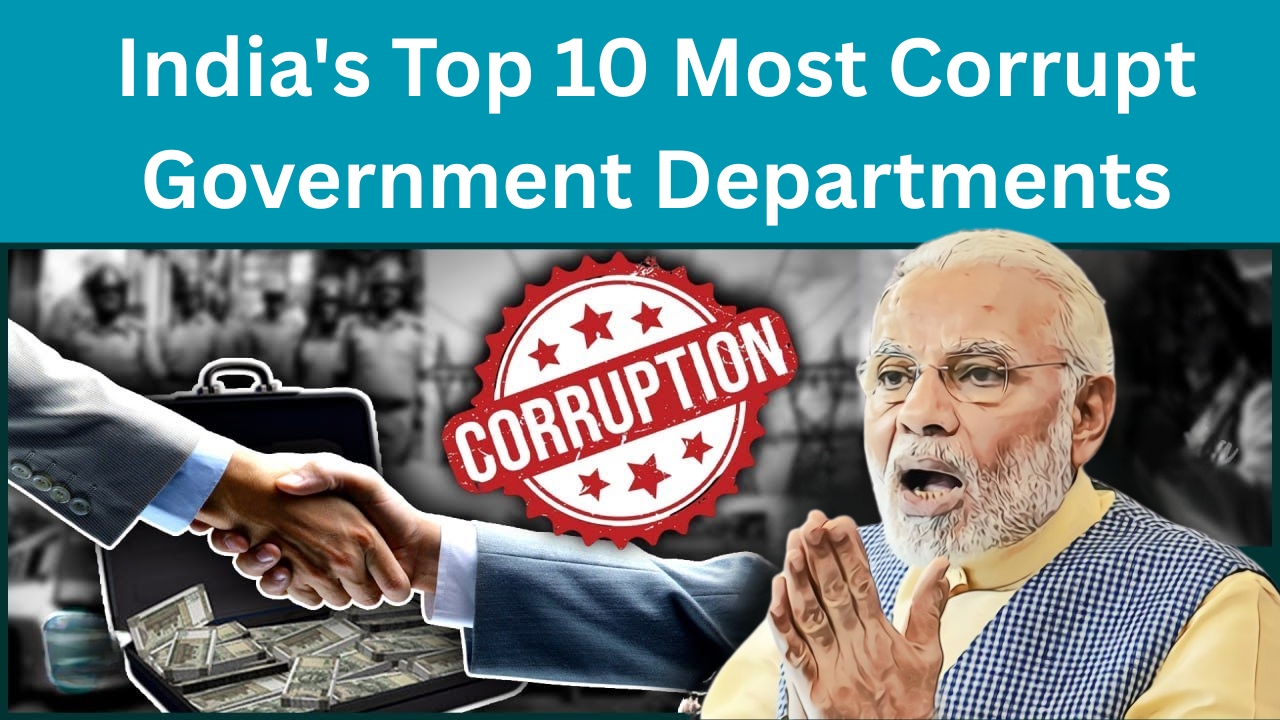Corruption in government jobs has been a long-standing issue in India. Many people wonder about which areas of government work face more corruption problems than others. This article will help you understand corruption in Indian government jobs in simple terms. We will look at why it happens, where it happens more, and what is being done to stop it.
Contents
What is Corruption in Government Jobs?
Corruption in government jobs means that government workers ask for gifts or extra money to do their normal jobs. They might ask for money to work faster at times. Sometimes, they might ask for money to do things that shouldn’t cost anything. This is wrong because taxes that everyone pays pay government workers.
People who work for the government should help others without asking for more money. People who just want to get their work done are hurt when they ask for bribes. People who are poor are the most affected because they can’t always pay these extra amounts.
Common Types of Corruption in Government Work
There are many ways corruption happens in government offices. Here are the most common types:
Taking Money for Normal Work: Some government workers ask for money to do work that is part of their regular job. For example, making a passport, getting a license, or getting certificates should not cost extra money beyond the official fees.
Making Work Slow on Purpose: Some workers make processes very slow so people get frustrated and pay extra money to speed things up. This is not fair to honest citizens who follow the rules.
Asking for Gifts: Some government workers ask for gifts or favors instead of money. This is also a form of corruption because they are using their position for personal benefit.
Nepotism: This means giving jobs or benefits to family members and friends instead of deserving people. This type of corruption hurts qualified people who deserve opportunities.
5 Most Corrupt Government Job in India
Based on public reports and studies, some areas of government work face more corruption challenges than others. It is important to note that not all workers in these areas are corrupt, but these sectors have reported more problems:
Police Department
The police department often faces corruption allegations. Some police officers might ask for money to register complaints, not write traffic tickets, or to handle cases faster. Citizens sometimes feel forced to pay because they are afraid or need urgent help.
Revenue Department
Workers who handle land records, property registration, and tax collection sometimes ask for extra money. Since these processes involve a lot of paperwork and legal procedures, some officials take advantage of people’s lack of knowledge.
Municipal Offices
Local government offices that give building permits, trade licenses, and handle local services sometimes have corruption issues. People who want to start businesses or build houses might face demands for extra payments.
Education Department
Some areas of education, especially in admissions, transfers, and appointments, have faced corruption problems. This affects the quality of education and fair opportunities for students and teachers.
Healthcare Services
In some government hospitals and health centers, people might be asked to pay extra for free services or medicines. This is particularly harmful because healthcare should be available to everyone.
Why Does Corruption Happen?
Understanding why corruption happens can help us think about solutions:
Low Salaries: Some government workers feel they do not earn enough money, so they try to make extra income in the wrong ways. However, this does not justify corruption.
Lack of Monitoring: When there is no proper checking of government workers, some might misuse their power. Regular monitoring can help reduce such problems.
Complex Procedures: When government processes are too complicated and take too long, people become willing to pay extra to avoid the hassle. Simplifying procedures can help reduce corruption.
Social Acceptance: In some places, people think small bribes are normal. This attitude needs to change for corruption to be reduced.
Government Efforts to Fight Corruption
The Indian government has taken many steps to reduce corruption:
Digital Services
Many government services are now available online. This reduces direct contact between officials and citizens, making corruption harder. Services like applying for passports, paying taxes, and getting certificates can now be done online in many places.
Right to Information Act
This law allows citizens to ask for information about government work. When government processes are transparent, corruption becomes more difficult.
Anti-Corruption Agencies
Special agencies like the Central Bureau of Investigation (CBI) and state anti-corruption bureaus work to catch corrupt officials and punish them.
Citizen Complaint Systems
Many states have set up helplines and online systems where people can complain about corruption. This helps identify problem areas and take action.
What Citizens Can Do
Every citizen has a role in fighting corruption:
Know Your Rights: Learn about government services and their official costs. When you know the rules, you cannot be easily cheated.
Use Official Channels: Always try to use official websites and procedures instead of unofficial agents who might ask for extra money.
Complain About Corruption: If someone asks you for a bribe, report it to anti-corruption helplines or online complaint systems.
Support Honest Officials: Appreciate and support government workers who do their job honestly. This encourages others to be honest too.
Recent Developments and Hope for the Future
People have become more aware of corruption in the last few years. A lot of government departments are trying to make their systems better. Digital technology is speeding up and making many things more clear. Young people also know more about their rights and are less likely to put up with corruption.
The government has also made punishments for corrupt officials harsher. When corrupt officials are caught and punished in public, it sends a strong message to other people.
Frequently Asked Questions (FAQ)
Q: Is it illegal to pay bribes to government officials? A: Yes, both giving and taking bribes are illegal in India. Citizens who pay bribes can also face legal problems, though the focus is usually on catching corrupt officials.
Q: What should I do if a government official asks for a bribe? A: You should refuse to pay and report the incident to anti-corruption helplines. You can also try to get the work done through official channels or with help from senior officials.
Q: Are all government employees corrupt? A: No, definitely not. Many government employees are honest and hardworking. Corruption is a problem with some individuals, not the entire system.
Q: How can I check if a government service should be free or paid? A: You can check official government websites, call government helplines, or visit Right to Information counters to get accurate information about fees and procedures.
Q: What happens to government employees who are caught taking bribes? A: They can face suspension, dismissal from service, imprisonment, and fines. Their property obtained through corruption can also be seized.
Also read: NCIB Corrupt Department List: India’s Top 10 Most Corrupt Government Departments – Full Report





